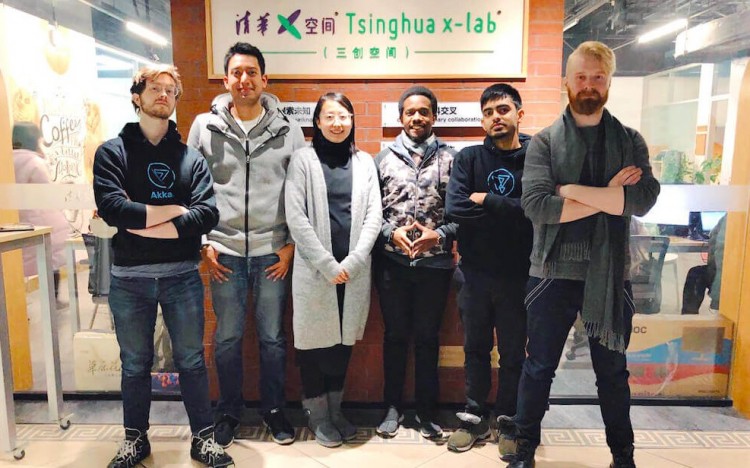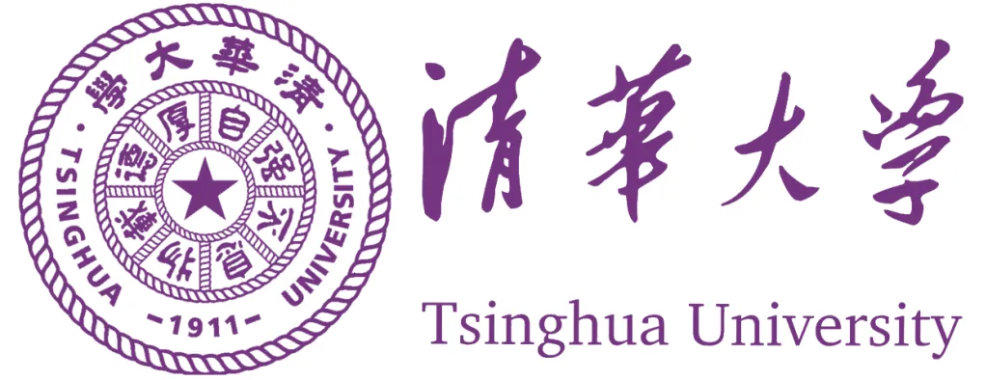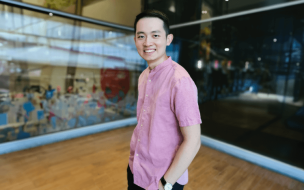Sat in a guest lecture, part of the Tsinghua-MIT Global MBA Program in Beijing some years later, he listened to senior executives from Facebook talk through the startup process; how to take an idea and turn it into a business.
The lecture was part of the MBA’s Innovation and Entrepreneurship: Insights from Silicon Valley course, delivered in partnership with Facebook and x-lab, the startup incubator for Tsinghua University.
Most of the speakers spoke in English, but when one started speaking Chinese, Alvaro remembers that half of the multinational audience left the room—there was no translator present and they couldn’t understand him.
“I thought, I’m going to find a solution this,” he says.
Why Tsinghua?
Alvaro moved to China after the financial crisis, when jobs in his native Spain were scarce. He always had a passion for entrepreneurship, developing computer management software as a hobby.
In Beijing, he ended up working for Microsoft, as a business analyst, before moving to another multinational IT firm, but he soon realized that he wanted something different.
Around the same time, he suffered a bereavement in the family. “I learned that you cannot predict what’s going to happen to you,” he says. “I realized I had to stop following the path society tells you to follow, and go back to the entrepreneurship dream that I had.”
Alvaro applied to Tsinghua University School of Economics and Management (Tsinghua SEM) because of its reputation for innovation and entrepreneurship. It was the only school he applied to and he was offered a scholarship which covered 80% of his tuition.
“I remember, even in my first training week before classes had started, there was a hackathon and I took part. I wanted to be part of the startup ecosystem from day one.”
Mark Zuckerberg, one of the Tsinghua SEM Advisory Board members, with students at Tsinghua University © Tsinghua University
Startup scene
Everything at Tsinghua, Alvaro says, is linked to innovation. He recalls reading some of the business cases—stories of entrepreneurs—three times over. But it was during the Insights from Silicon Valley course that Alvaro started work on a startup idea of his own.
The two-month course guides MBA students through every stage of the startups process with Facebook executives delivering their expertise. In the HR class, for example, an HR representative from Facebook takes students through how to recruit and how to allocate tasks. Mark Zuckerberg sits on Tsinghua SEM’s advisory board.
Alvaro pitched to around 300 students from across the university—not just MBA students, but PhD students, trainee lawyers, accountants, and engineers—to recruit them to join his team.
At the end of the course, students pitch to Facebook executives and venture capital investors. The first place team win VIP tickets to Facebook’s annual F8 meeting in Silicon Valley, including a breakfast with Facebook’s leadership team.
Alvaro’s startup, Akkadu, provides real-time streaming and translation services for events. It allows people to tune into events remotely, removes the need for event planners to hire local translators, and provides data on how the audience engage with the event online.
Alvaro came second in the startup competition. While he missed out on the top prize, his experience more than paid off. A year on, when he was looking for funding, he found investors in Beijing already knew about him.
“The competition is famous among investors,” he says. “Through it, they started to know more about what Akkadu was doing.”
MBA to entrepreneur
Like many famous entrepreneurs, it was in Silicon Valley that Alvaro decided to take the leap and go full-time with his business. His decision prompted a “huge fight in the street” with his wife, Liu Lin, who he was holidaying with following a class trip to MIT in the summer after his first year.
“Most of my classmates were looking for jobs, but I wanted to go back to China and focus on my startup. Eventually I got my wife’s support!” he smiles.
Alvaro is now based out of Tsinghua’s x-lab, in the Tsinghua Science Park, which provides him with free office space for a year, a free address when registering his company, and a network of mentors on-hand to help him grow his business.
Since its launch in 2013, x-lab has helped 196 startups raise over $470 million in funding. Together with the Tsinghua X-Elerator, x-lab is funded by TusHoldings, which is part of Tsinghua Holdings, one of China’s biggest firms.
Alvaro is launching Akkadu in China and fundraising for his first seed investment round. Already, he’s live-translated around 200 events at a rate of one per day. His clients include Harvard Business School and McKinsey. He’s exploring how he can use artificial intelligence to support his human interpreters.
Being an entrepreneur not easy. Alvaro gets up early and works late. He and Liu Lin moved into a smaller apartment in Beijing to cut rent and sustain his business.
But Alvaro is happier than before. To succeed in China, he says, you need to be open-minded and develop a strong network—and that’s where an MBA can help.
From the lawyers who read over contracts for him; to the former classmates he goes to for advice; to the mentors and professors who act as a sounding board for his ideas—“All these things I get for free because I’m a Tsinghua MBA,” he says.










